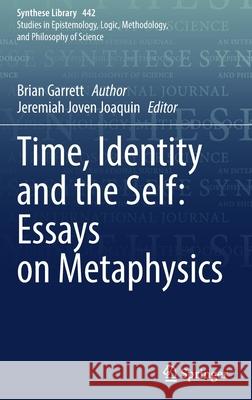Time, Identity and the Self: Essays on Metaphysics » książka



Time, Identity and the Self: Essays on Metaphysics
ISBN-13: 9783030855161 / Angielski / Twarda / 2022 / 170 str.
Time, Identity and the Self: Essays on Metaphysics
ISBN-13: 9783030855161 / Angielski / Twarda / 2022 / 170 str.
(netto: 287,51 VAT: 5%)
Najniższa cena z 30 dni: 289,13
ok. 16-18 dni roboczych.
Darmowa dostawa!
Brian Garrett is a Professor at the School of Philosophy, The Australian National University. He specializes in analytic philosophy and metaphysics. He is the author of What is this thing called metaphysics? (Routledge, 2006; 2011; 2016), Elementary Logic (Acumen, 2012), and Personal Identity and Self-Consciousness (Routledge, 1998). He has published articles in top philosophy journals, like Mind, Analysis, The Philosophical Quarterly, and the Australasian Journal of Philosophy.
This volume contains twenty-four essays by the British/Australian analytic metaphysician, Brian Garrett. These essays are followed by four short dialogues that emphasize and summarize some of the main points of the essays and discuss new perspectives that have emerged since their original publication.
1997-2026 DolnySlask.com Agencja Internetowa
KrainaKsiazek.PL - Księgarnia Internetowa









